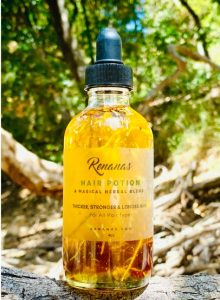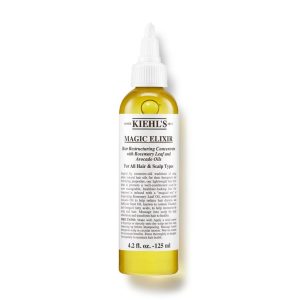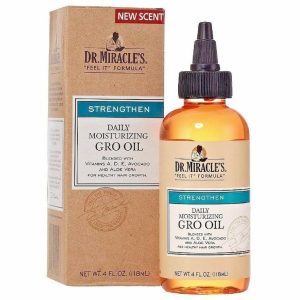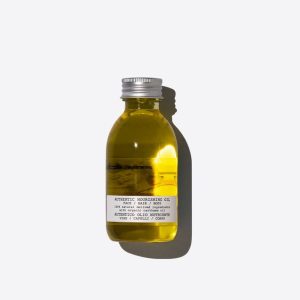
Mineral oil is a common ingredient in many beauty products, including hair care. But is it really beneficial for hair? Here’s a breakdown of mineral oil’s properties and its potential effects on hair.
Understanding Mineral Oil
Mineral oil is a highly refined oil derived from petroleum. It’s colorless, odorless, and has a slick texture. Because of these properties, mineral oil is widely used in cosmetics for various purposes.
How Mineral Oil Works in Hair Products
Mineral oil works in hair products in a few ways:
Moisturizing:
It coats the hair shaft, creating a barrier that helps trap moisture and prevent dryness.
Detangling:
Mineral oil can make hair smoother, reducing friction and tangles.
Shine:
The oil’s reflective properties can add shine to hair.
Potential Benefits of Mineral Oil for Hair
There are some potential benefits to using hair products with mineral oil, especially for dry or damaged hair:
- Reduced dryness: Mineral oil can help prevent moisture loss, keeping hair hydrated.
- Improved manageability: By reducing friction, mineral oil can make hair smoother and easier to manage.
- Enhanced shine: The oil’s reflective properties can add a glossy sheen to hair.
Considerations for Using Mineral Oil on Hair
While mineral oil may offer some benefits, there are also some considerations:
- Coating vs. Penetrating: Mineral oil sits on the hair shaft rather than penetrating it. This means it may not deeply nourish hair like some other oils.
- Build-up: Overuse of mineral oil can lead to product build-up, making hair look greasy and weighed down.
- Not for all hair types: Mineral oil might not be suitable for all hair types. People with fine or oily hair might find it too heavy.
Alternatives to Mineral Oil for Hair
There are many natural oils that offer similar benefits to mineral oil for hair, such as:
- Coconut oil: Moisturizes and adds shine.
- Argan oil: Rich in nutrients and promotes manageability.
- Jojoba oil: Similar to hair’s natural sebum, offering lightweight hydration.
Choosing the Right Oil for Your Hair
The best oil for your hair depends on your hair type and desired results. Consider:
- Hair type: Fine hair might benefit from lighter oils like jojoba, while coarse hair might do well with coconut oil.
- Scalp condition: If you have a dry scalp, coconut oil can be helpful. For oily scalps, jojoba oil might be a better choice.
- Desired results: For intense moisture, coconut oil is good. For manageability and shine, argan oil is a popular option.
Mineral oil can provide some benefits for hair, especially for dryness and shine. However, it’s important to consider its limitations and choose the right product for your hair type. There are many natural oils that offer similar benefits without the potential drawbacks. Experiment and find what works best for your hair’s health and appearance!
Finding the Right Hair Care Routine for You
There are many factors to consider when creating a hair care routine, including your hair type, scalp condition, and desired results. Here are some tips:
- Know your hair type: Hair can be straight, wavy, curly, coily, fine, thick, or a combination. Understanding your hair type will help you choose the right products and techniques.
- Listen to your hair: Pay attention to how your hair responds to different products and styling methods. If your hair feels dry or brittle, it might need more moisture. If it feels greasy, you might need to adjust your shampoo or styling products.
- Focus on scalp health: A healthy scalp is essential for healthy hair growth. Maintain a clean scalp by shampooing regularly and avoiding harsh products.
Consult a professional stylist
If you’re unsure about what type of hair oil or products are best for you, consider consulting a professional hairstylist. They can assess your hair type and scalp condition and recommend a personalized hair care routine.
Mineral oil can be a part of a hair care routine, but it might not be the best fit for everyone. There are many other hair care products and techniques available to achieve healthy, beautiful hair. Experiment and find what works best for you! Here are some additional tips for healthy hair:
- Gentle brushing: Brush your hair gently to remove tangles and distribute natural oils.
- Heat styling: Limit heat styling tools like blow dryers and straighteners, as they can damage hair.
- Trim regularly: Split ends can travel up the hair shaft, so regular trims are important for healthy hair.
By following these tips and finding the right hair care routine for you, you can achieve your hair goals!
Understanding Your Hair Needs
Mineral oil can offer some shine and moisture benefits, but it might not be the best fit for everyone. Here’s how to explore your hair’s unique needs and discover alternatives:
- Hair typing: Understanding your hair type is crucial. Fine hair might feel weighed down by mineral oil, while thick hair might benefit from its moisture properties. Research hair typing methods to identify your hair’s characteristics.
- Scalp health: A healthy scalp promotes healthy hair growth. If you have concerns about dandruff or scalp irritation, consult a dermatologist to determine the best course of action.
Natural Moisture Powerhouses
Many natural oils offer similar benefits to oil, often without the potential drawbacks:
- Coconut oil: Rich in moisture, especially beneficial for dry hair.
- Argan oil: Packed with nutrients and known for adding shine and manageability.
- Jojoba oil: Similar to the scalp’s natural sebum, offering lightweight hydration for most hair types.
Natural Hair Care Practices
Here are some natural hair care practices that can contribute to healthy hair:
- Deep conditioning: Regularly using a deep conditioner can add moisture and strengthen hair. Look for conditioners with ingredients like shea butter or avocado oil.
- Scalp massage: Gently massaging your scalp can improve blood circulation, which may benefit hair growth. You can massage your scalp while shampooing or during a dedicated self-care routine.
- Healthy diet: Ensure your diet includes essential nutrients for hair growth, like iron, vitamin D, and biotin. Aim for a balanced diet rich in fruits, vegetables, and whole grains.

Natural Alternatives for Hair Care
There are many natural oils and hair care practices that can promote healthy hair:
Many natural oils offer similar benefits to mineral oil, often with added nutrients. Popular options include coconut oil, argan oil, and jojoba oil. These oils can add moisture, shine, and manageability to hair.









